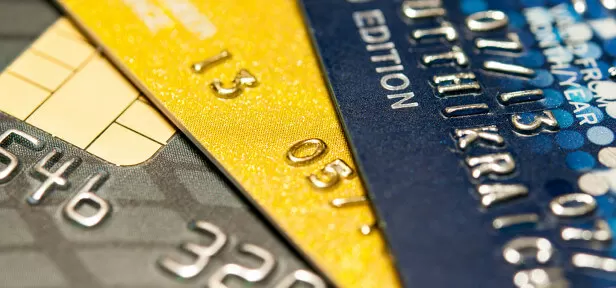Check out these tips from moneyland.ch to get a better credit card experience and avoid unnecessary costs.
Tip 1: Compare credit cards and save
Compare the costs and benefits of Swiss credit cards on moneyland.ch. Using a card that matches your needs can save you hundreds of Swiss francs per year!
Tip 2: Don’t use credit cards to get cash
Do your wallet a favor and avoid using credit cards to make cash withdrawals from ATMs – both in Switzerland and abroad. The cash advance fees are deadly. Using a debit card like a Maestro, V-Pay or Postfinance card for cash withdrawals is free at in-network Swiss ATMs. Outside of Switzerland using a debit card to get cash typically costs less than half as much as using a credit card. There are exceptions to this rule which you can read about in our guide to free cash withdrawals using credit cards.
Tip 3: Minimize foreign currency transaction costs
The foreign transaction fee charged by card issuers (anywhere between 1.2% and 2% depending on the issuer) is just one of the costs involved in using credit cards to pay merchants outside of Switzerland. The exchange rate used for foreign transactions is just as important. Exchange rates can change on a daily basis and are set by card issuers like UBS, Viseca, Postfinance, Cembra Money Bank and Cornèrcard. If you make a lot of purchases in foreign currencies, using a foreign currency credit card denominated by that currency (U.S. dollars or euros, for example) can help you avoid spreads – as long as you settle your card bill in the same foreign currency.
Tip 4: Pay in the local currency
When you use a credit card while traveling abroad, always charge payments in the local currency of the country you are visiting. Never pay in Swiss francs using dynamic currency conversion.
Tip 5: Use multiple credit cards
Depending on what you use credit cards for, using more than one credit card can make financial sense. For example, you could use a no-annual-fee credit card for purchases in Switzerland, and a credit card with a low foreign transaction fee for purchases outside of Switzerland.
Tip 6: Adjust your line of credit
You can find the maximum line of credit available for each individual credit card in the moneyland.ch credit card comparison. If your current limit is lower than the maximum possible limit, you could consider applying for a higher limit. If you have good creditworthiness and a reasonable income, getting a higher limit should not be a problem. However, it is up to the card issuer to decide whether or not they will increase your line of credit.
Tip 7: Creditworthiness is key
When you apply for a credit card, the card issuer checks your credit records to make sure you will be able to meet your credit card payments and that you will not become over-indebted. Your creditworthiness is determined by your ZEK credit history, among other factors. On average, more than 20 percent of credit card applications are turned down. If you are not able to get a credit card, consider using a prepaid card instead. These can be used in place of credit cards for most purposes. Prepaid cards are included in the moneyland.ch credit card comparison.
Tip 8: Pay attention to interest rates
If you expect to carry balances over from month to month, make sure to get informed about how much interest you will be charged before you do so. Interest rates are shown on the info pages of individual credit cards in the credit card comparison. Note that the interest you pay for credit card debt is higher than the interest which you pay for personal loans.
Tip 9: Avoid late-payment penalties
If possible, set up direct debit orders for your credit card payments. This will help you avoid paying bills late and incurring late-payment penalties and interest charges.
Tip 10: Compare card benefits
If you need specific services or insurance coverages, consider using a credit card which provides them as complimentary benefits. In many cases, this can work out cheaper than getting services separately. The moneyland.ch credit card comparison makes it easy to filter and sort cards based on the complimentary benefits which they provide. You can also compare customer satisfaction ratings.
Tip 11: Visa or Mastercard?
Many Swiss credit cards are issued in both Visa and Mastercard versions. This has no effect on the fees, charges and benefits, which are identical on both versions. It only affects where you can use the card to pay or get cash advances.
Tip 12: You pay more for prestige
In almost every case, using the “gold” or “platinum” credit cards offered by Swiss issuers works out more expensive than using a standard or “silver” credit card. However, if you need the special privileges and insurance benefits provided by high-end credit cards and you make full use of the benefits, the money which you save through the benefits can in some cases outweigh the higher fees which you pay for the cards.
More on this topic:
Swiss credit card comparison



